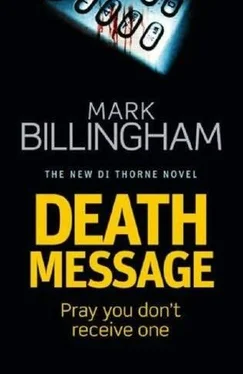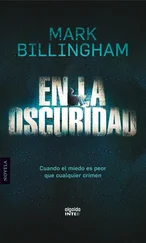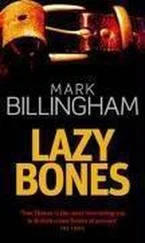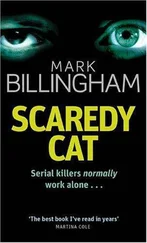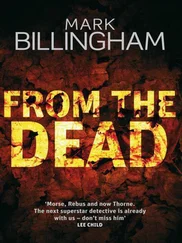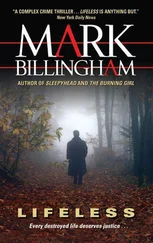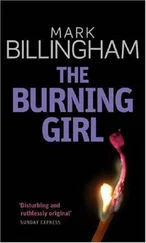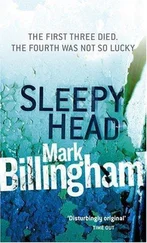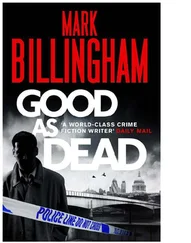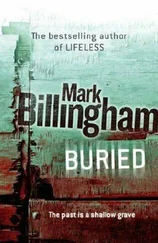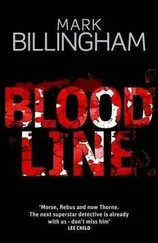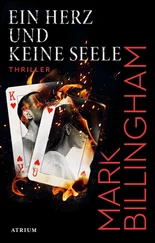‘Good news: we’ve got the name of a man identified as our killer by the victim’s girlfriend.’ Kitson poured her tea. Used a paper serviette to mop up the spills. ‘Bad news: he’s disappeared.’
‘Kemal?’
‘The dry cleaner’s has been closed for a week and the neighbours haven’t clapped eyes on him. Done a bunk, by the look of it.’
Thorne spoke through a mouthful of toast. ‘Well, it’s certainly not great news if you need a shirt pressed, but it sounds like he’s your man.’
‘Right. Which is why it’s fucking bad news.’
One of the other detectives looked across, as though foul language from a woman this early in the day was putting him off his full English. Kitson stared back, leaving him in no doubt that there was plenty more where that came from.
‘He’ll turn up,’ Thorne said.
‘If he’s still in the country. Probably hiding out in some Turkish fishing village by now.’
‘You got people on the ports?’
‘It’s being “organised”.’ She put the word in inverted commas, as though to question the efficiency of those doing the organising. ‘But I reckon it’s too bloody late.’
‘Do you think he got wind that his sister knew? That she was likely to grass him up?’
‘Who knows?’
‘It would explain why she was so scared.’
‘Maybe she wasn’t the only one who was scared,’ Kitson said. ‘Deniz Sedat had some seriously unpleasant friends. If I was Hakan Kemal, it wouldn’t be the police I was most worried about.’
Thorne nodded, chewed his toast. Thinking that Kitson’s theory was all well and good, but that she hadn’t come across a certain sort of policeman as yet.
On his way to his office, Thorne walked past as Stone was running over his ‘women and bin-bags’ routine for an attractive admin officer. It seemed to be working for him.
This job’s a fucking joke…
Plenty of them flying around, and an unusually good atmosphere in the Incident Room. This in spite of the fact that most of those working would rather have been doing something else on a Saturday morning: having sex; watching Football Focus ; having sex while watching Football Focus.
Just after breakfast, he’d received a text on his old mobile.
You were SO hot last night. You’re the best xxx
Hendricks. Thorne was smiling as he deleted the message. Thinking that a short stay in prison didn’t sound too bad as things stood, he’d told Hendricks about the live listening. He knew the cheeky bastard was doing it for the benefit of those intercepting the texts on that line; imagined the comments once they had traced the number.
Mid-morning, Thorne’s mood was taken down a notch or two by a call from Keith Bannard.
‘Been upsetting my snout?’
Tindall: a covert human information source, or CHIS, according to a thousand memos and expenses claims. But anyone wishing not to sound wholly ridiculous used the well-worn slang, beloved of every fictional cop from Jack Regan onwards.
‘Obviously he’s easily upset.’
‘Yeah, well, it’s me that gets the earache…’
Listening to him, Thorne imagined the man from S &O as a TV policeman: a no-nonsense country copper running amok in the big city; red face and big flapping hands, constantly outraged by the way people did things and by the price of everything. Sorting things out his way.
Thorne explained why he and Holland had made the trip to Soho. That though Mr Tindall was clearly a very sensitive individual, he was also a lying toerag.
‘Get anything?’ Bannard asked.
‘What, you mean apart from the grief and the offer of free tickets to a dirty film?’
‘Yeah, well, we all get those.’
‘I got a list of names.’ Thorne told Bannard about the conversation Tindall claimed to have had with Marcus Brooks; about the people he’d advised Brooks to go and speak to about accommodation. He read out the names.
‘You talked to any of them yet?’ Bannard asked.
‘Some are getting visits later today.’
‘Good luck.’
Thorne was hardly surprised that Bannard was pessimistic. ‘What the fuck is it with these people when it comes to talking to the police? I don’t mean incriminating themselves, or grassing someone up. I mean just saying anything . With the Black Dogs it’s like a badge of honour or something. With the boys in the suits it’s right up there with pie and mash, and boxing, and loving their mums.’
‘Maybe it’s just you,’ Bannard said. ‘They all talk to me.’
‘Only when you’ve got something on them.’
‘It helps.’
‘How did you get Tindall to start talking?’
‘Money, mate.’ Bannard was matter-of-fact. ‘Easiest way of all. His wife was ill, about to croak, I think. He needed money to help look after her.’
Thorne felt a twinge of guilt at his appraisal of Tindall. At the same time he thought that Bannard’s character would perhaps be too steely for even the most jaded of television viewers. ‘Anything you can put our way?’ he asked. ‘On any of these names?’
‘Not really.’
‘Thought you might have some… leverage.’
‘Listen, mate, if I had anything on any of those bastards, I’d have used it by now.’
‘Just a thought.’
‘No harm in asking.’
‘Haven’t you got anybody on the inside with any of these firms?’
Bannard sucked in a breath; answered like a taxi-driver being asked to drive south of the river at 4 a.m. ‘Can’t really go there, mate.’ He said he’d ask around, see if anyone else on his team had any bright ideas. Everyone had different contacts.
Thorne said that he’d be grateful. ‘What we were talking about the other night,’ he added. ‘Under the bridge. I was wondering if the Black Dogs had got themselves a new leader yet.’ He was thinking about who else Marcus Brooks might be planning on getting rid of. The message he was expecting some time that day.
Bannard sniffed. ‘Well, if they have, I don’t know who it is. I’ll get word eventually. It’ll be some long-haired fucker with tattoos, though, I can promise you that.’
Thorne knew what Bannard meant. He’d already been getting the three dead bikers mixed up in his head: a mass of dead white flesh and coloured ink.
‘I reckon that’s why they’ve got the nicknames,’ Bannard said. ‘So they can tell each other apart.’
‘Makes sense,’ Thorne said. Bannard had been joking, but it was what his old man had done when everything had started to short-circuit. Names had been the first things to go, replaced by simple – and usually unflattering – physical descriptions. Everyone from the man who ran the newsagent’s to Tom Thorne himself.
‘So, is that your best bet?’ Bannard asked. ‘The names you got from Tindall.’
‘Best bet?’
‘Trying to trace Brooks, I mean.’
Well, apart from the cosy text messages we send each other in the early hours, thought Thorne.
‘We’re chasing up a few other things,’ he said.
Actually, there were more than a few.
The so-called golden twenty-four hours after Martin Cowans’ corpse was hauled out of the canal had yielded nothing remotely precious, but there were still plenty of active leads to follow up: the property taken from the address in Hammersmith; the latest description of Marcus Brooks; the information provided by Davey Tindall. Though officers had been dispatched to question those on Tindall’s list, most of the inquiry team – which had now swelled to fifty-plus police and civilian staff – were busy where most modern detective work was done: at a desk, with phone, fax and computer keyboard all within easy reach.
These days, the majority of medical claims filed by Met employees were for bad backs or repetitive strain injury. Not even patrol officers – teamed up as often as not with CSO part-timers – suffered with their feet any more. Although Thorne thought he probably wore out a little more shoe-leather than most; certainly for someone of his rank.
Читать дальше
